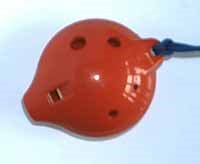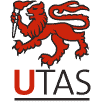A WINDOW ON THE ARAB WORLD (10)

Modernisation and development are happening at break-neck speed in Oman. In 1960, the country did not have electricity, proper roads, cars, television or any of the
gadgets of modern living.Then, with the discovery of oil, and later natural gas, things started to move.The current Sultan came to the throne after ousting his own father.
The old man had tried to stop all modernization, but with British military help, was swept aside. Oman was then set on a course of development which it has followed ever since. Modern hospitals appeared and the average life expectancy rose by fifteen years. A new road system now covers the country. New buildings shot up everywhere. Omanis exchanged their donkeys for fast Japanese and American cars. Changes which took place over centuries in other countries were accomplished in a few decades in Oman.The whole process of change was telescoped. The country was a fascinating mixture of the old and the new - a gleaming Mercedes would pass someone driving a donkey cart on the street. A brand-new BMW would be washed from water drawn from the centuries-old falaj water system, which derived its water from mountain streams.
Nasir explained to me that everyone in Oman was pleased with the material well being that the oil had brought. Life was much easier now with mod cons such as washing machines and refrigerators. Mobile telephones made communication easier. Cars and good roads meant people could get around more easily .Free universal health care was a tremendous boon – the average life expectancy had risen by fifteen years. Everything was easier and more convenient than in the old days.Nobody wanted to go back to those. However, he was much more wary when discussing social values.He liked the God-fearing, communal, traditional nature of Omani society and wanted it preserved. Women should continue performing their traditional role as well , and should know their place.Education was good but Omani life should not lose that sense of innocence , the strength of family and community ties that characterized it.He was proud,he said of ‘the positive values’ of Omani society which had to be cherished.We should be aware ,he said,of the negative aspects of progress and Western influence.To many Arabs,the West can appear godless, uncaring and materialistic .
ภาพจาก Bugbog









